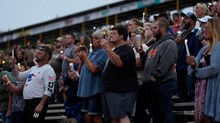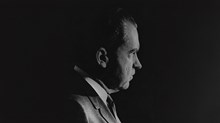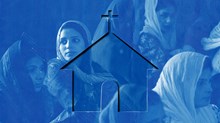Leaders of conservative Christian groups are wringing their hands over pending approval of a federal hate crimes bill, but opinions are divided on whether their fears are justified.
More than a decade since Matthew Shepard, a gay, 21-year-old Wyoming college student, was murdered, Democrats may pass a bill in his name that would add sexual orientation and gender identity to the list of federally prosecuted hate crimes. The House passed the legislation 249-175 in late April, and the Senate could vote on a nearly identical bill as early as today.
Opponents envision a world where pastors could be arrested for preaching against homosexuality. But supporters say the bill does plenty to protect the freedoms of speech and religion.
The disputes center on a section of the bill that purports to guard constitutionally protected speech, expressive conduct, and activities. Protected activities include "the exercise of religion protected by the First Amendment and peaceful picketing or demonstration," according to the legislation. The bill also states that no one can be prosecuted solely for expressing racial, religious, political, or other beliefs.
However, the bill adds that "speech, conduct or activities consisting of planning for, conspiring to commit, or committing an act of violence" is not constitutionally protected. That sentence is alarming to conservative Christian groups such as Focus on the Family and the Family Research Council, who say the law would severely hamper Christians' freedom to address homosexuality in sermons, radio programs, and other public venues.
Ashley Horne, a federal policy analyst for Focus on the Family, said that if passed, the law could expose pastors to federal prosecution if an attendee of their church committed a crime and blamed it on sermons about homosexuality. The bill does not adequately protect Christians from gay activists, she says. She worries that the prosecution would be based on evidence of motivation.
"Don't ask me how they're going to figure out what you perceived and how you perceived that," she said. "It's a nightmare."
Erik Stanley, senior legal counsel for the Alliance Defense Fund, said that while churches and their ministers will probably not be directly prosecuted, pastors could still be called upon to testify in the prosecution of a hate crime just because they preached on homosexuality.
"I think once that happens, that is going to send a huge chill through the pastorate," Stanley said.
And Richard Land, president of the Southern Baptist Ethics and Religious Liberty Commission, says the immediate impact on churches will be in the higher bills they might pay for liability insurance.
"I think what's going to scare the liver out of the insurance companies is people will go into civil court and claim damages based on speech from the pulpit," Land said.
Supporters of the act include Jim Wallis, founder of Sojourners, and Joel Hunter, pastor of Northland Church in Florida, who signed an endorsement pledge last month.
"I would think that the followers of Jesus would be first in line to protect any group from hate crimes," Hunter said in a statement. "He was the one who intervened against religious violence aimed at the woman caught in the act of adultery. He protected her while not condoning her behavior."
The bill's supporters point out that the fears of many conservative Christian groups are not based in historical legal precedent. Hate crime laws currently exist in 45 states—31 of which include sexual orientation on the list of protected classes — and there have been no cases related to sexual orientation, according to Michael Lieberman, director of the civil rights policy-planning center for the Anti-Defamation League.
"Practice is a very powerful argument that those concerns are either confused or overwrought," Lieberman said. "Some of these laws have been on the books for 20 years and there are zero cases like [pastors being prosecuted]."
Ever since the first hate crime law was passed in 1968, there have been fewer than 10 indictments related to the protected classes of race, color, religion, or national origin, Lieberman said.
Also, a section of the bill states that a person can only be prosecuted for causing bodily injury, not for inflicting emotional or psychological harm to the victim. Lieberman said that that clarification should put fears to rest in clergy and congregations that they could be prosecuted simply for expressing their religious beliefs.
Despite the vigorous opposition, the bill appears closer than ever before to becoming law. Legislators have repeatedly tried to add sexual orientation to the hate crimes list ever since Shepard's murder, and President Obama has said that he will sign the law if it is approved this time around.
Copyright © 2009 Christianity Today. Click for reprint information.
Related Elsewhere:
Previous stories on hate crimes legislation include:
Hate Crimes Bill Dropped | Some religious conservatives had complained it threatened religious liberty and equality. (December 10, 2007)
House Adds Homosexuality to Hate-Crimes Protections | White House opposition fails to ease many Christians' worries. (May 4, 2007)
Christianity Today also follows political updates on the politics blog.

Support Our Work
Subscribe to CT for less than $4.25/month

















